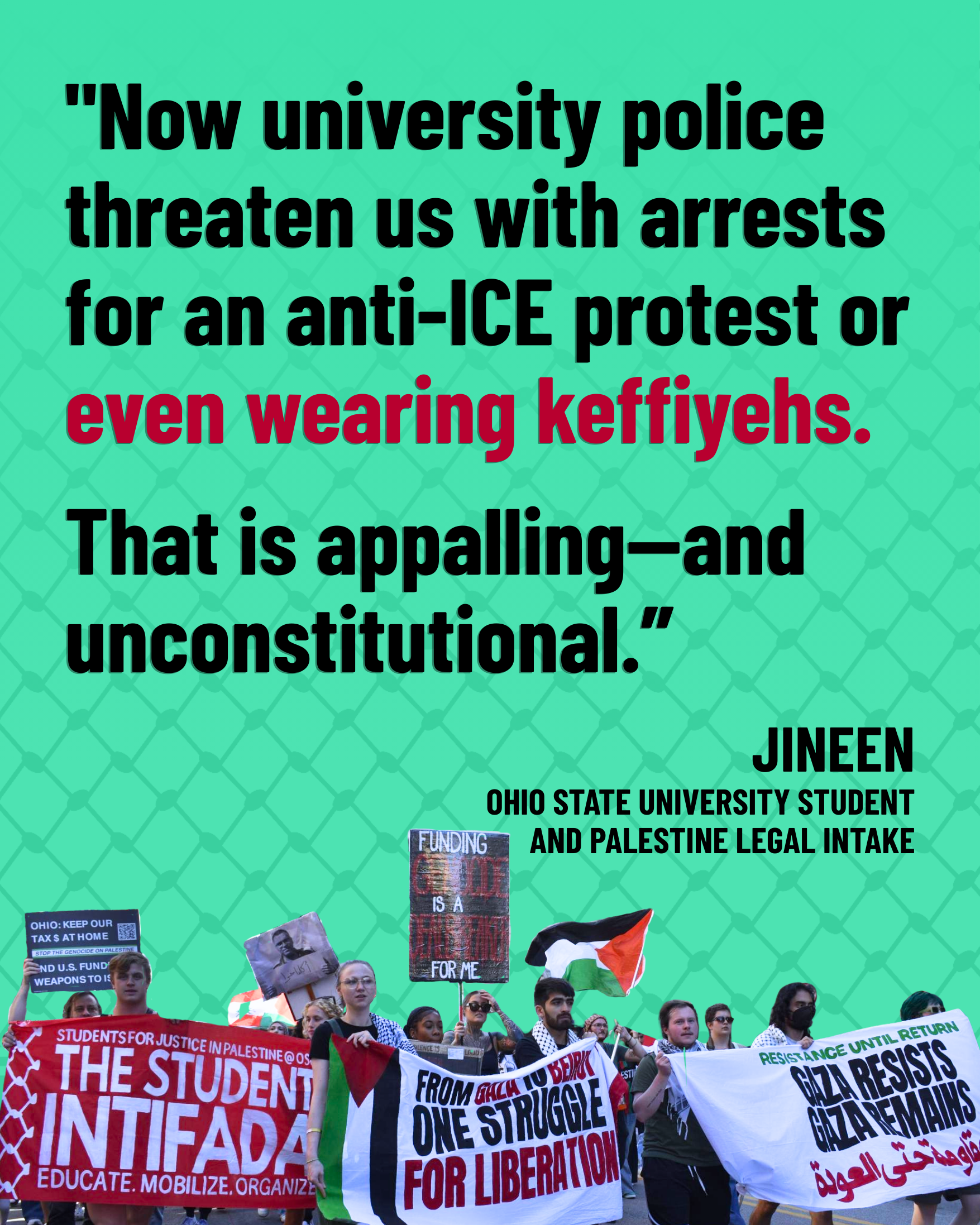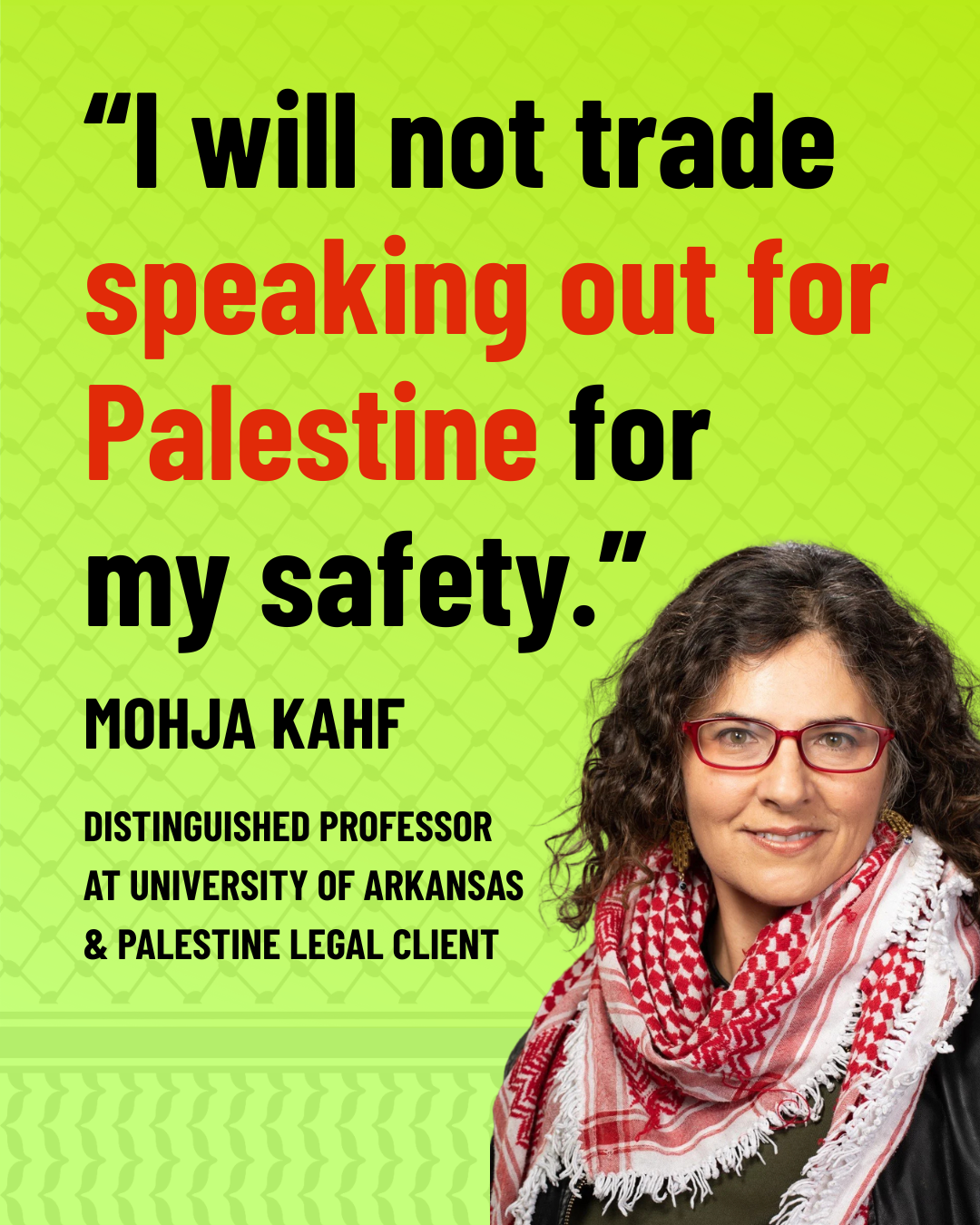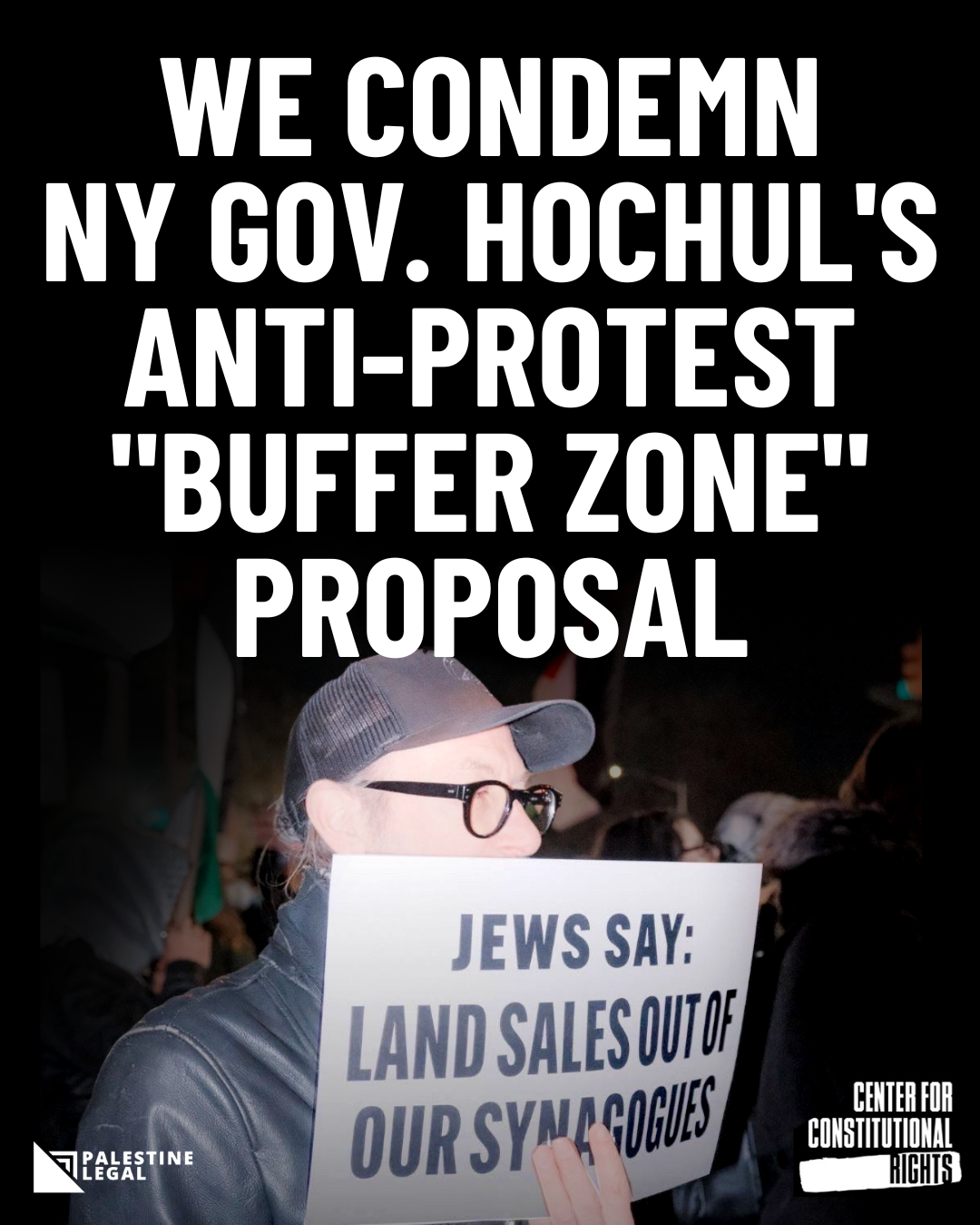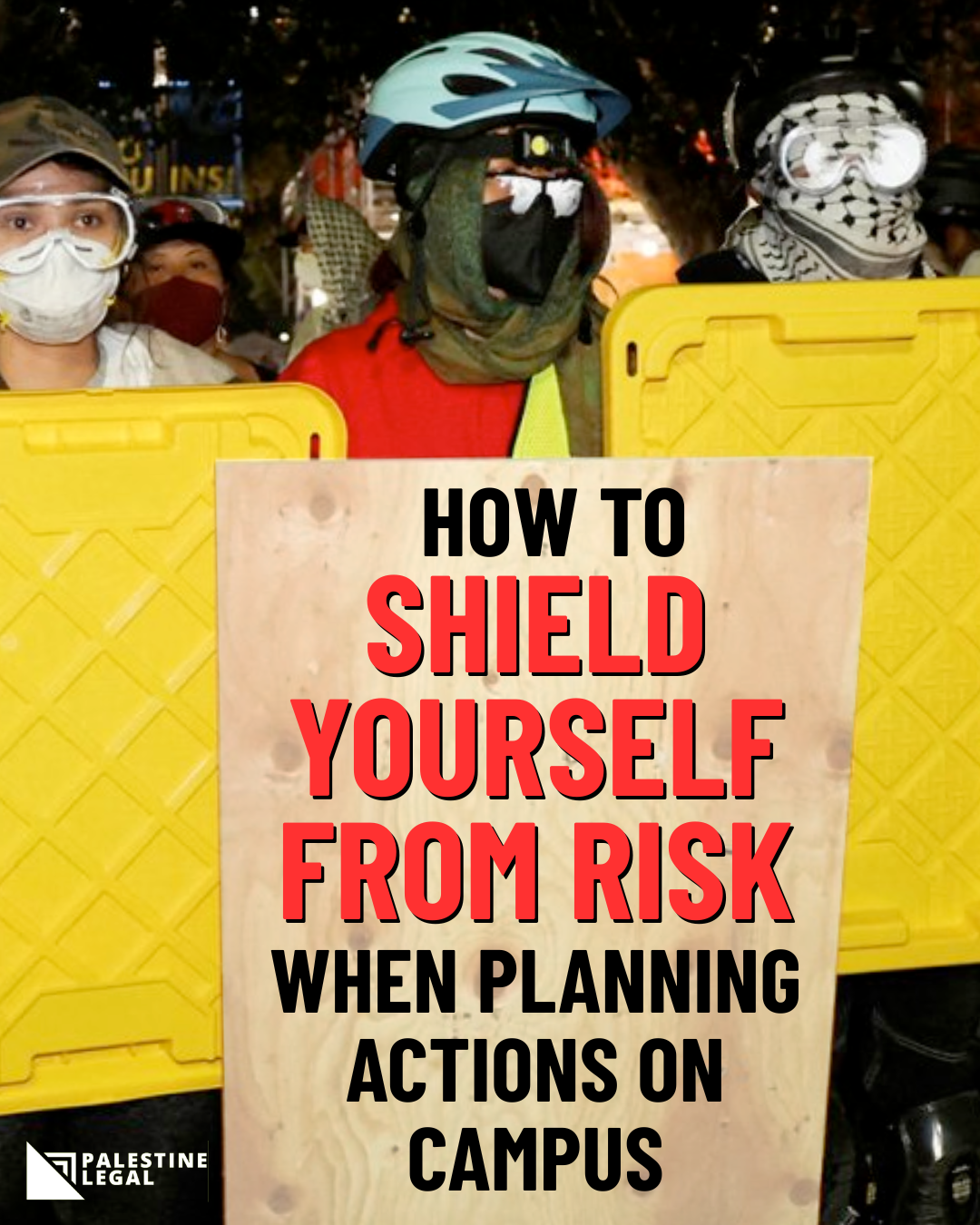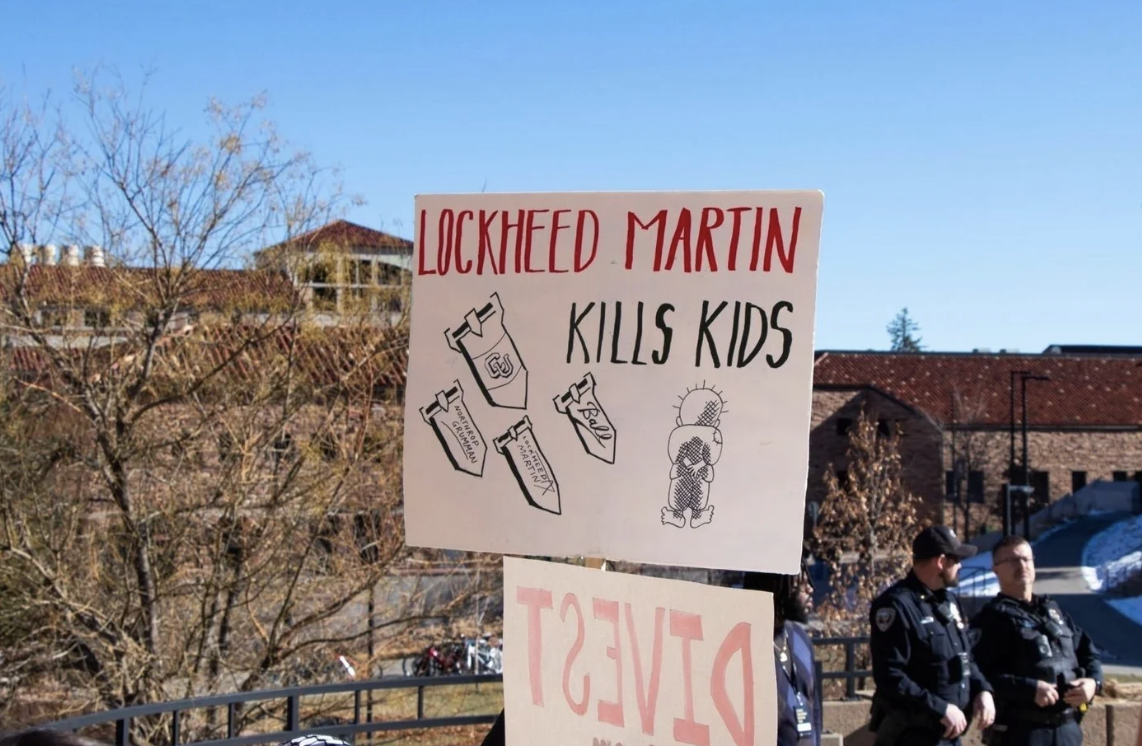2020 in Review: The Movement Will Not Be Canceled
/Photo credits (left to right and top down): Ryan Sin, American Friends Service Committee and the Center for the Study of Political Graphics, ahmad daraldik, sfsu GUPS, joe catron, elias ayoub, columbia sjp, jb brager.
Palestine Legal Responds to More Than 200 Attacks on Palestine Advocacy in 2020—Over 1,700 Since 2014
Palestine Legal has released a new report analyzing trends in the censorship of the U.S. movement for Palestinian rights in 2020, in the context of the Trump administration’s crackdown on Palestine advocacy and the impacts of the COVID-19 pandemic.
Under conditions of remote learning and quarantine, students voted online to divest from companies complicit in Israeli human rights violations at Columbia University and UIUC and to stop campus police exchanges with the Israeli military at Tufts; professors organized webinars supporting Palestinian freedom in the face of corporate censorship; and activists collaborated across the country to hold a seemingly unprecedented number of virtual events on Palestinian rights.
“Despite all of the attacks against the movement for Palestinian freedom and despite the pandemic placing much of the country on lockdown during 2020, activism for Palestinian rights continued to flourish in the United States,” said staff attorney Zoha Khalili.
Palestine Legal responded to 213 incidents of suppression of U.S.-based Palestine advocacy over the course of 2020, totaling 1,707 suppression incidents between 2014 and 2020. The incidents included discrimination, baseless legal threats, disciplinary investigations, censorship, and false accusations of antisemitism.
There were a number of trends in the incidents Palestine Legal responded to in 2020:
University students and faculty were targeted in 80 percent of the incidents.
Two-thirds (66%) of the incidents involved false accusations of antisemitism due to activists’ support for Palestinian rights.
There was a continuation in the abuse of federal civil rights complaints as a tool to silence campus Palestine advocacy.
Cyber bullying and surveillance intensified, with Israel advocacy groups and Israel-funded apps pushing smear campaigns against individual activists.
At least 21 bills were introduced at the state and federal level targeting the movement for Palestinian rights.
19 measures were introduced at the state level and two were introduced on the federal level.
Only four of the measures passed or were adopted.
Anti-boycott laws were signed into law in Oklahoma and Missouri in the middle of the COVID-19 pandemic.
Trump’s December 2019 executive order adopting a distorted definition of antisemitism aimed at silencing criticism of Israel cast a long shadow over the year, leading to at least four federal civil rights investigations into Palestine advocacy at Bard College, Georgia Tech, UCLA, and UIUC, and threats by Israel advocacy groups against at least six other schools.
The use of cyberbullying tools characterized many attacks, and Palestinian student leaders were particular targets for censorship.
For example, an Israel-funded app that awards people points for sending complaints about activists targeted Ahmad Daraldik, a 20-year-old Palestinian American and the student senate president at Florida State. He was subject to a state-wide political witch hunt over social media posts he made as a child criticizing Israel’s military occupation of Palestine.
The same app targeted Nerdeen Kiswani, student body vice president at CUNY Law, who faced a character assassination campaign after posting an old video of herself waving a lighter while criticizing a friend for wearing a T-shirt promoting the Israeli military.
And the app launched an attack against a class on Palestine at San Francisco State in September, which resulted in its censorship by Zoom and other tech platforms.
Palestinian student leaders at Butler University overcame attempts to silence them in a student government meeting, during a failed effort to adopt Trump’s redefinition of antisemitism on campus.
While 2020 was marked by severe conditions, including the pandemic and racial justice uprisings, it was also a year of intense organizing across movements. Illustrating the power of such organizing, a right-wing Israel advocacy group called on the Department of Justice to investigate Black Lives Matters groups for supporting Palestinian rights.
In the dying days of the Trump administration, it was clear that shielding Israel was a priority for the administration, as Secretary of State Mike Pompeo took to increasingly unhinged attacks on advocacy for Palestinian freedom. The State Department threatened to create blacklists of organizations that support boycotts for Palestinian freedom, leaked plans to label prominent human rights groups such as Amnesty International and Human Rights Watch antisemitic, and stated on social media that anti-Zionism is antisemitism.
“The Trump administration’s actions represented the meeting of rightwing and pro-Israel desires to silence the movement for Palestinian freedom,” said Zoha Khalili. “While the threats seem to be continuing, with Biden adopting many of Trump’s anti-Palestinian policies, it’s clear that censorship efforts can’t silence a freedom movement.”
View the full report here.
Contact us if you are interested in reporting about these suppression efforts. And reach out if you are facing suppression in your own Palestine advocacy.



